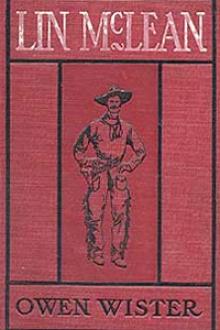The Girl from Sunset Ranch, AMY BELL MARLOWE [mini ebook reader txt] 📗

- Author: AMY BELL MARLOWE
Book online «The Girl from Sunset Ranch, AMY BELL MARLOWE [mini ebook reader txt] 📗». Author AMY BELL MARLOWE
But there was something more. The suspicion against Prince Morrell had burdened the cattle king's mind and heart when he died. And his little daughter felt it to be her sacred duty to try, at least, to uncover that old mystery and to prove to the world that her father had been guiltless.
Mr. Grimes lived in an old house in a rather shabby old street just off Washington Square. Helen asked Mr. Lawdor how to find the place, and she rode downtown upon a Fifth Avenue 'bus.
The house was a half-business, half-studio building; and Mr. Grimes's name--graven on a small brass plate--was upon a door in the lower hall. In fact, Mr. Grimes, and his clerk, occupied this lower floor, the gentleman owning the building, which he was holding for a rise in real estate values in that neighborhood.
The clerk, a sharp-looking young man with a pen behind his ear, answered Helen's somewhat timid knock. He looked her over severely before he even offered to admit her, asking:
"What's your business, please?"
"I came to see Mr. Grimes, sir."
"By appointment?"
"No-o, sir. But----"
"He is very busy. He seldom sees anybody save by appointment. Are--are you acquainted with him?"
"No, sir. But my business is important."
"To you, perhaps," said the clerk, with a sneering smile. "But if it isn't important to him I shall catch it for letting you in. What is it?"
"It is business that I can tell to nobody except Mr. Grimes. Not in detail. But I can say this much: It concerns a time when Mr. Grimes was in business with another man--sixteen years or more ago and I have come--come from his old partner."
"Humph!" said the clerk. "A begging interview? For, if so, take my advice--don't try it. It would be no use. Mr. Grimes never gives anything away. He wouldn't even bait a rat-trap with cheese-parings."
"I have not come here to beg money of Mr. Grimes," said Helen, drawing herself up.
"Well, you can come in and wait. Perhaps he'll see you."
This had all been said very low in the public hall, the clerk holding the door jealously shut behind him. Now he opened it slowly and let her enter a large room, with old and dusty furniture set about it, and the clerk's own desk far back, by another door--which latter he guarded against all intrusion. Behind that door, of course, was the man she had come to see.
But as Helen turned to take a seat on the couch which the clerk indicated with a gesture of his pen, she suddenly discovered that she was not the only person waiting in the room. In a decrepit armchair by one of the front windows, and reading the morning paper, with his wig pushed back upon his bald brow, was the queer old gentleman with whom she had ridden across the continent when she had come to New York.
The discovery of this acquaintance here in Mr. Grimes's office gave Helen a distinct shock.
CHAPTER XVIII (PROBING FOR FACTS)
Helen sat down quickly and stared across the room at the queer old man. The latter at first seemed to pay her no attention. But finally she saw that he was skillfully "taking stock" of her from behind the shelter of the printed sheet.
The Western girl was more direct than that. She got up and walked across to him. The clerk uttered a very loud "Ahem!" as though to warn her to drop her intention; but Helen said coolly:
"Don't you remember me, sir?"
"Ha! I believe it is the little girl who came from the coast with me last week," said the man.
"Not from the coast; from Montana," corrected Helen.
"But you are dressed differently now and I was not sure," he said. "How have you been?"
"Very well, I thank you. And you, sir?"
"Well. Very. But I did not expect to see you again--er--here."
"No, sir. And you are waiting to see Mr. Grimes, too?"
"Er--something like that," admitted the old man.
Helen eyed him thoughtfully. She had already glanced covertly once or twice at the clerk across the room. She was quite bright enough to see between the rungs of a ladder.
"You are Mr. Grimes," she said, bluntly, looking again at the old man, who was adjusting his wig.
He looked up at her slily, his avaricious little eyes twinkling as they had aboard the train when he had looked over her shoulder and caught her counting her money.
"You're a very smart little girl," he said, with a short laugh. "What have you come to see me about? Do you think of investing some of your money in mining stocks?"
"No," said Helen. "I have no money to invest."
"Humph. Did you find your folks?" he asked, turning the subject quickly.
"Yes, sir."
"What's the matter with you, then? What do you want?"
"You are Mr. Grimes?" she pursued, to make sure.
"Well, I don't deny it."
"I have come to talk to you about--about Prince Morrell," she said, in a very low voice so that the clerk could not hear.
"Who?" gasped the man, falling back in his chair. Evidently Helen had startled him.
"Prince Morrell," she replied.
"What are you to Prince Morrell?" demanded the man.
"I am his daughter. He is dead. I have come here to talk with you about the time--the time he left New York," said the girl from Sunset Ranch, hesitatingly.
Mr. Grimes stared at her, with his wig still awry, for some moments; then the color began to come back into his face. Helen had not realized before that he had turned pale.
"You come into my office," he snapped, jumping up briskly. "I'll get to the bottom of this!"
His movements were so very abrupt and he looked at her so strangely that, to tell the truth, the girl from Sunset Ranch was a bit frightened. She trailed along behind him, however, with only a hesitating step, passing the wondering clerk, and heard the lock of the door of the inner office snap behind her as Mr. Grimes shut it.
He drew heavy curtains over the door, too. The place was a gloomy apartment until he turned on the electric light over a desk table. She saw that there were curtains at all the windows, and at the other door, too.
"Come here," he said, beckoning her to the desk, and to a chair that stood by it, and still speaking softly. "We will not be overheard here. Now! Tell me what you mean by coming to me in this way?"
He shot such an ugly look at her that Helen was again startled.
"What do you mean?" she returned, hiding her real emotion. "I have come to ask some questions. Why shouldn't I?"
"You say Prince Morrell is dead?"
"Yes, sir. Nearly two months, now."
"Who sent you, then?"
"Sent me to you?" queried Helen, in wonder.
"Yes. Somebody must have sent you," said Mr. Grimes, watching her with his little eyes, in which there seemed to burn a very baleful look.
"You are mistaken. Nobody sent me," said Helen, recovering a measure of her courage. She believed that this strange man was a coward. But why should he be afraid of her?
"You came clear across this continent to interview me about--about something that is gone and forgotten--almost before you were born?"
"It isn't forgotten," returned Helen, meaningly. "Such things are never forgotten. My father said so."
"But it's no use hauling everything to the surface of the pool again," grumbled Mr. Grimes.
"That is about what Uncle Starkweather says; but I do not feel that way," said Helen, slowly.
"Ha! Starkweather! Of course he's in it. I might have known," muttered the old man. "So he sent you to me?"
"No, sir. He objected to my coming," declared Helen, quite convinced now that she should not deliver her uncle's letter.
"The Starkweathers are the people you came East to visit?"
"Yes, sir."
"And how did they receive you in their fine Madison Avenue mansion?" queried Mr. Grimes, looking up at her slily again.
"Just as you know they did," returned Helen, briefly.
"Ha! How's that? And you with all that----"
He halted and--for a moment--had the grace to blush. He saw that she read his mind.
"They do not know that I have some money for emergencies," said Helen, coolly.
"Ho, ho!" chuckled Mr. Grimes, suddenly.
"So they consider you a pauper relative from the West?"
"Yes, sir."
"Ho, ho!" he laughed again, and rubbed his hands. "How did Prince leave you fixed?"
"I--I have something beside the money you saw me counting," she told him, bluntly.
"And Willets Starkweather doesn't know it?"
"He has never asked me if I were in funds."
"I bet you!" cackled Grimes, at last giving way to a spasm of mirth which, Helen thought, was not nice to look upon. "And how does he fancy having you in his family?"
"He does not like it. Neither do his daughters. And one of their reasons is because people will ask questions about Prince Morrell's daughter. They are afraid their friends will bring up father's old trouble," continued Helen, her voice quivering. "So that is why, Mr. Grime's, I am determined to know the truth about it."
"The truth? What do you mean?" snarled Grimes, suddenly starting out of his chair.
"Why, sir," said Helen, amazed, "dad told me all about it when he was dying. All he knew. But he said by this time surely the truth of the matter must have come to light. I want to clear his name----"
"How are you going to do that?" demanded Mr. Grimes.
"I hope you will help me--if you can, sir," she said, pleadingly.
"How can I help more now than I could at the time he was charged with the crime?"
"I do not know. Perhaps you can't. Perhaps Uncle Starkweather cannot, either. But, it seems to me, if anything had been heard from that bookkeeper----"
"Allen Chesterton?"
"Yes, sir."
"Well! I don't know how you are going to prove it, but I have always believed Allen was guilty," declared Mr. Grimes, nodding his head vigorously, and still watching her face.
"Oh, have you, Mr. Grimes?" cried the girl, eagerly, clasping her hands. "You have always believed it?"
"Quite so. Evidence was against my old partner--yes. But it wasn't very direct. And then--what became of Allen? Why did he run away?"
"That is what other people said about father," said Helen, doubtfully. "It did not make him guilty, but it made him look guilty. The same can be said of the bookkeeper."
"But how can you go farther than that?" asked Mr. Grimes. "It's too long ago for the facts to be brought out. We can have our suspicions. We might even publish our suspicions. Let us get something in the papers--I can do it," and he nodded, decisively, "stating that facts recently brought to light seemed to prove conclusively that Prince Morrell, once accused of embezzlement of the bank accounts of the firm of Grimes & Morrell, was guiltless of that crime. And we will state that the surviving





Comments (0)